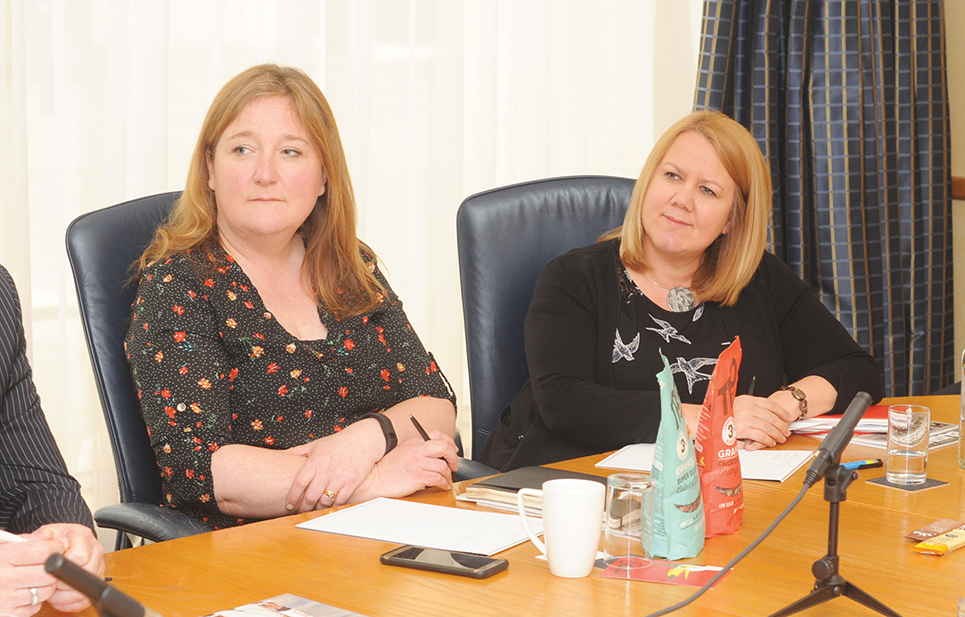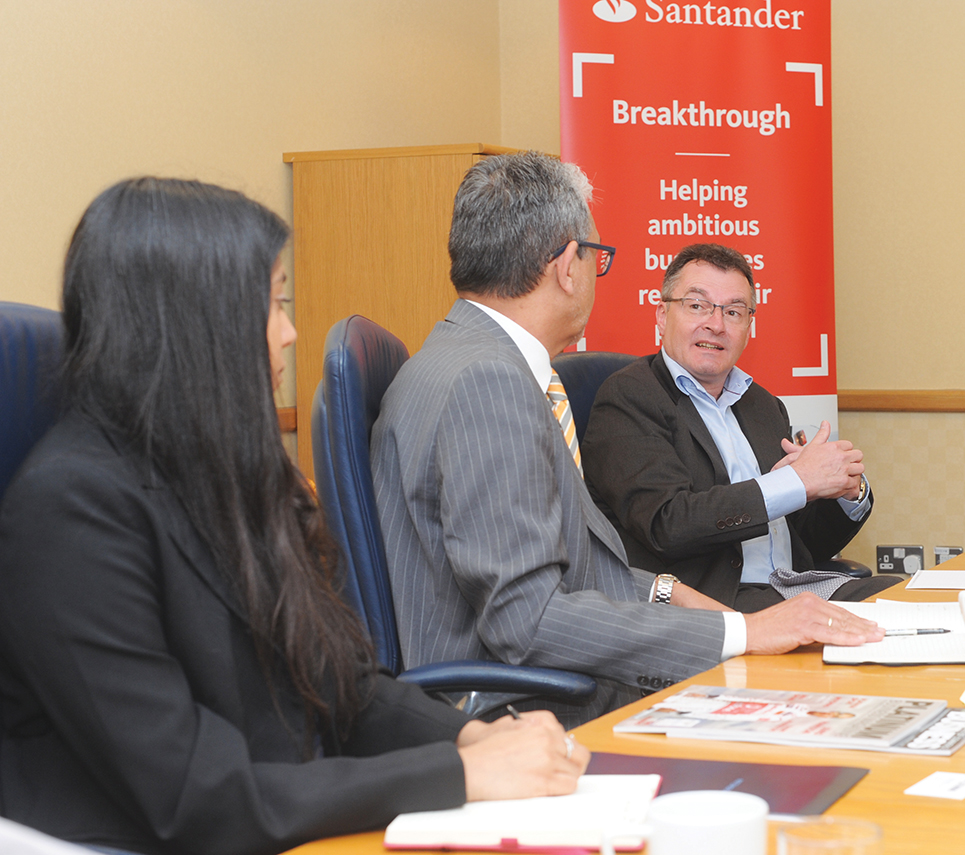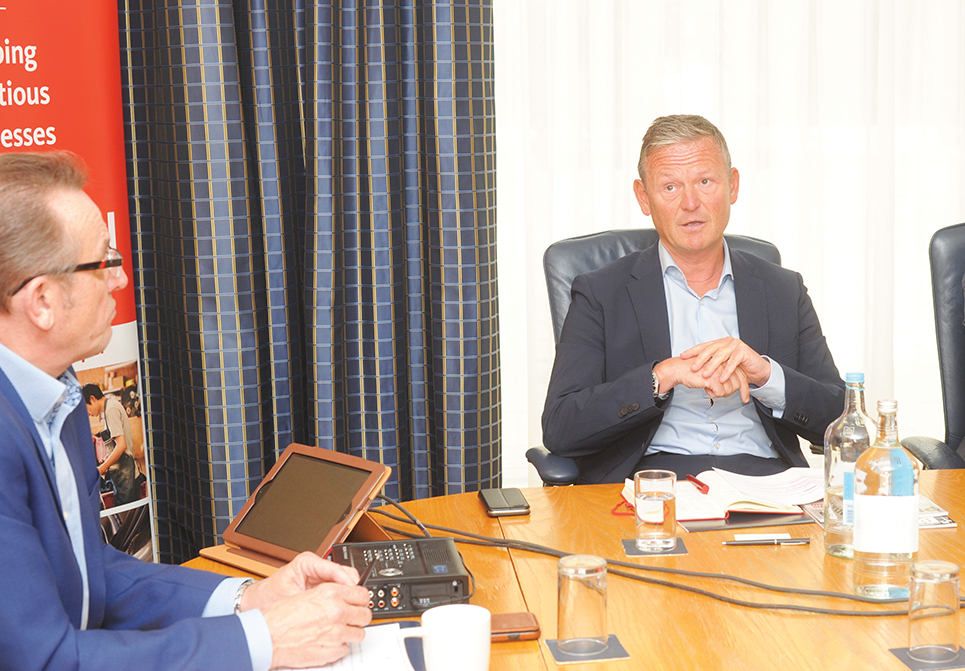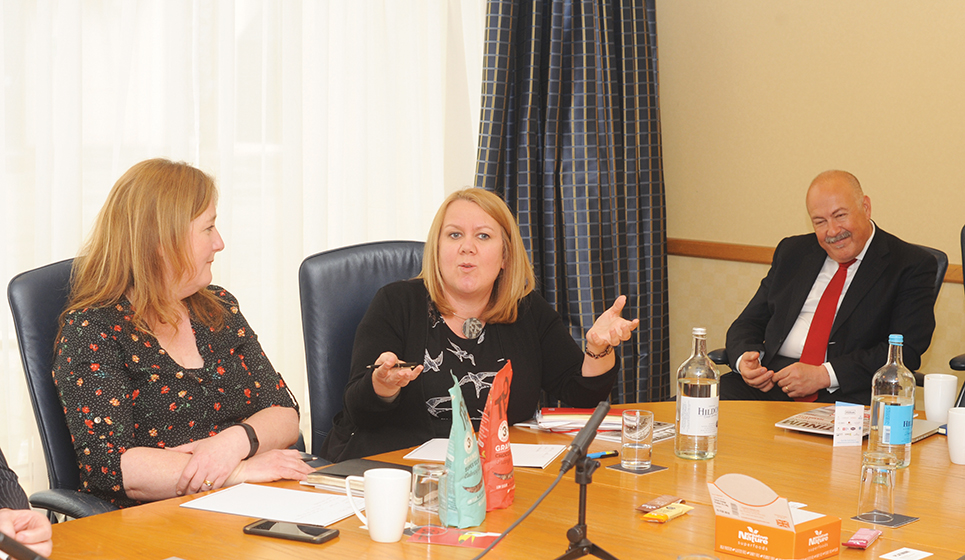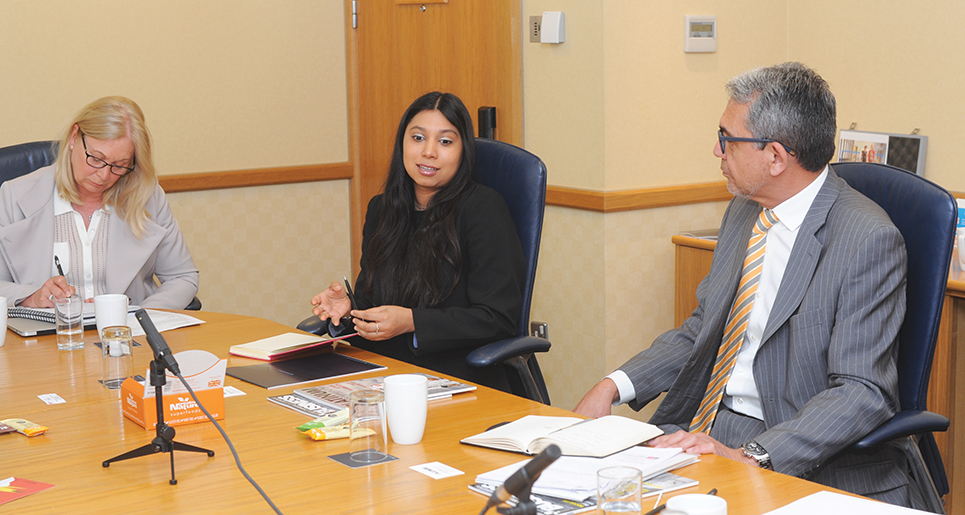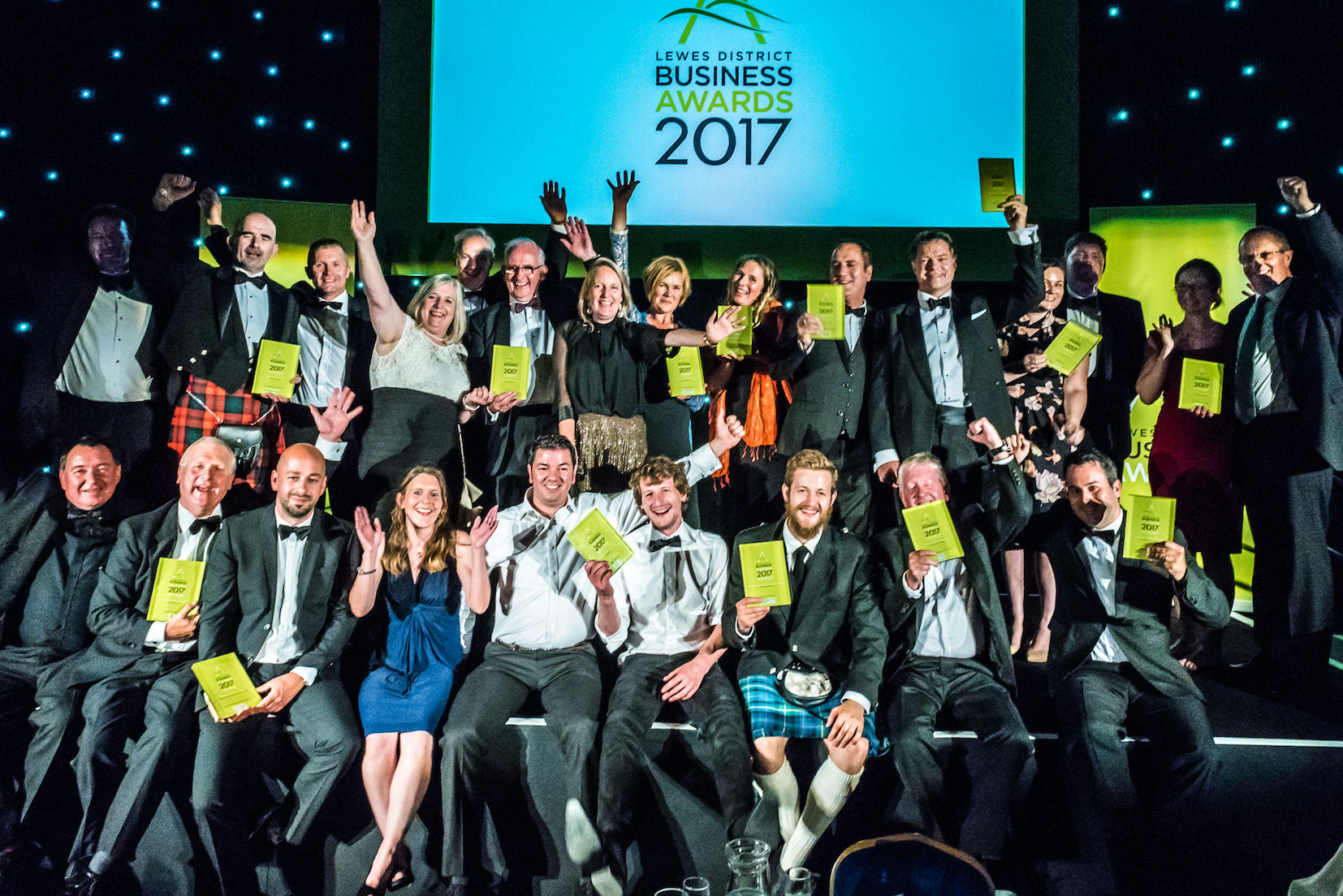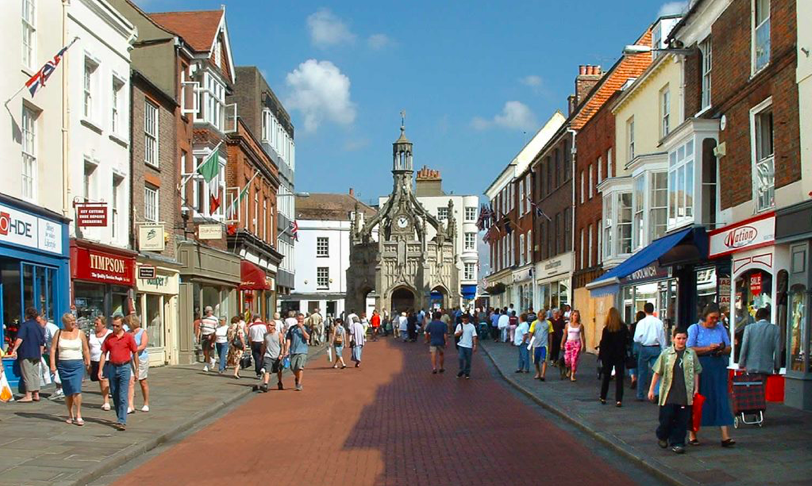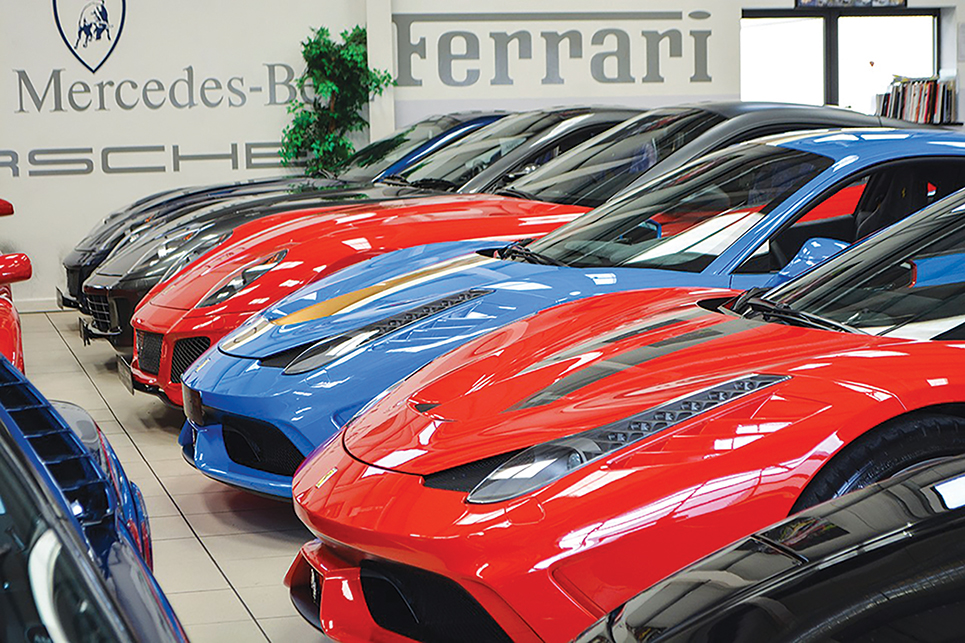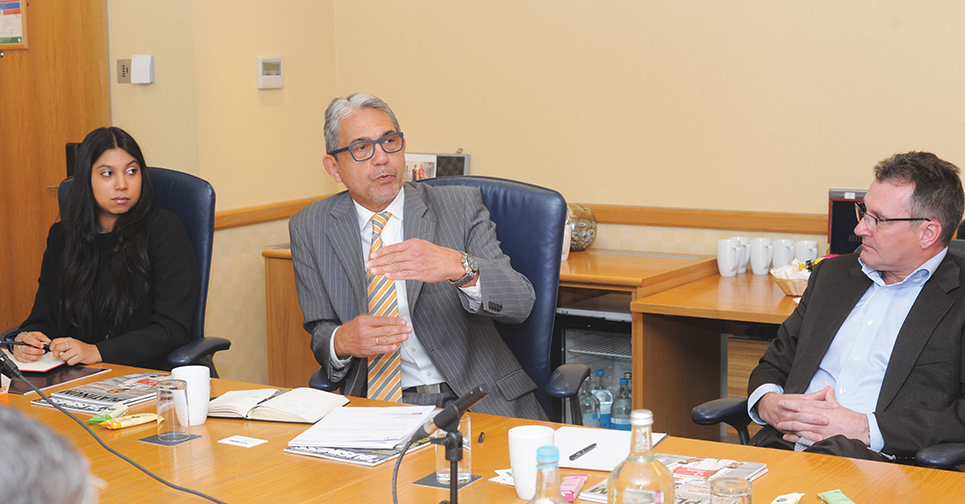
Are you exporting? Are you thinking of exporting?
We invited a panel of international trade experts and business owners to discuss the opportunities presented by exporting - and the issues businesses face.
The Panel
Mark Collings, Head of International for Santander SME Banking
Mike Coomber, Director, Rivertrace
Lev Denker, Trade Advisor, Department for International Trade
Paula Kemp, Breakthrough Business Manager, Santander Business
Julianne Ponan, CEO, Creative Nature Super Foods
Helenor Rogers, Founder, Troo Foods
Jeremy Taylor, CEO, Gatwick Diamond Business
The Debate
Fear of exporting
Lev: It is quite often that fear of the unknown is the biggest obstacle. This is understandable, but a lot of companies don’t realise how much help is available out there. The Department for International Trade (DIT) offers practical help to companies both small and large. We have trade advisors across the region and our job is talk to clients, look at their business and advise them objectively if their business is suitable for exporting.
We can help them understand the legal, transport, language and culture issues, and we also help them find distributors or agents overseas. Business can also get valuable support from banks, Chambers of Commerce and trade associations.
Businesses shouldn’t be frightened but they should be prepared. It’s very important to get your planning strategy right. There’s help to get them on the first ladder of exporting and if they are on it already we can help them to climb higher.
Helenor: We’re pre-export and I’m not scared because of the DIT. I have a fantastic trade advisor, Richard Bond, who we met at a very early stage. He has held our hand and made sure that we are really thinking about export right from the start of our business evolution.
We told him we were concentrating on the UK first, and he said, “I understand you’re doing the UK first but don’t preclude yourself from doing export first because there could be even bigger opportunities for you.”
I still think we need to learn our lessons first. But we are not thinking that we have to be a £1 million UK company before we export. We just need to make sure that our logistics are in order. We want to make the mistakes and then go to market knowing that that our product is robust, knowing who our target market is, and knowing how to service the customers. Having been on several DIT training courses we’re doing it with confidence, so when we do go to export we will be doing the right thing.
I went on a DIT trade mission with Santander last year and very quickly realised the benefit that the bank could bring if we want to be a serious export brand in Europe.
I think it will be early next year.
Lev: You put your finger on it: “When you’re ready.” That’s the important thing. We always say make sure that you’re on solid ground at home. If it doesn’t succeed at home it’s very unlikely that it will succeed overseas.
Helenor: It’s all very exciting when you’re new and someone says, “I could take a pallet next week to Hong Kong.” By going on the DIT training courses you get the confidence to wait if you know the timing isn’t right. I’ve heard lots of stories from people who took up those offers and they’ve ended up with their pallet stuck in customs or they’ve had other problems.
Jeremy: I think there is a fear. I would suggest with quite a number of business owners it’s quite easy to say “My product isn’t ready.” But will it ever be ready? There has to be a point where you decide to make the step into the unknown.
When you talk to people who have made the leap they will usually say that they wish they had gone sooner. Most will also say that you have got to go to the country, you can’t do it remotely. Some use LinkedIn to great effect, using it to announce that they are visiting a country, and in doing so, they have people getting in touch to arrange meetings when they visit.
Creative Pod’s Matt Turner told me he was almost thinking of setting up a New York office and approaching people in the UK saying, “I’m over from New York, can we have a meeting?” as people will say, “Blimey, yeah! You’ve come all the way from New York!”
I was in business in Atlanta, Georgia, a few years ago and, out of the blue, someone said “This guy wants to meet you.” I said “Who is he?”
“He is the head of one of the biggest law firms in Georgia.” “Oh, okay, great. Why does he want to meet me?” “Because you’ve come here.”
You can’t underestimate the power of going somewhere.
Mark: Our surveys tell us that just under two-thirds of SMEs are confident of growth in the next 12 months, and this includes businesses that are either currently internationally trading or want to internationally trade. There is still a fear factor, so it is important to build supportive networks. If you want to explore overseas markets go with other people who are exporting or are planning to export, and you will benefit from the trusted advice from the businesses you travel with.
Julianne: The way I’ve built my business is to jump off the cliff and build the airplane on the way down. That’s how it is as an entrepreneur. I wouldn’t be where I am today if I didn’t say yes to things. I wouldn’t be in Sainsbury’s, I wouldn’t be in ASDA. I turned up and knocked on the doors and did it. And the same happens with exporting. We have an advantage as British brands are respected. People buy because British manufacturing is known to be one of the best.
Jeremy: The key is to be “Be ready to be lucky - a great example is Tangletease, who made the hairbrush used by Kate Middleton’s hairdresser on the morning of her wedding. A very famous Chinese model or soap actress was in Britain at the time, tried the brush and tweeted “I love this brush. It makes my hair look like a princess.”
Knowing this lady has got millions of followers, Tangletease immediately registered ‘Princess Brush’ as a trademark in China. It’s a huge success and is a case of being ready to be lucky.
How do you decide which country to trade with?
Helenor: Social media is very helpful because it is global. I can tell from my Instagram following where we are getting interest. Our positioning is about gut health. So where are the areas where people are looking for products which are gut healthy or gluten-free? We can’t afford to do big advertising campaigns globally so where is there an intrinsic interest in my product?
There’s lots of information you can get from the DIT. We joined the Institute of Directors, which as a small companies only cost £100 to join the IoD. With the IoD, you can say “I would like you to give me some research on the gluten-free market in Spain” and they’ll write you a report. I think you’re allowed 20 reports a year. Also, you’re allowed a number of sessions with their experts. We benefitted from some great advice about trademarking our company when we discovered a Greek company had the same name, which saved us the cost of using trademark lawyers.
Julianne: We tried Scandinavia first, about two and a half years ago. We went over there, looked at what was on the shelves and saw they were way ahead of the UK. We thought it would be easy to get in but it wasn’t because they were so ahead.
We’d thought being a British product meant we were coming in from a different angle. There was already a market there for allergen-free products and healthy eating, it’s only going to grow further. The press and social media depicted Scandinavia’s focus on healthy eating and gluten-free. We thought there’s got to be a market for us. But we found it very tough because they were able to produce a lot cheaper than we were. We’re selling there now but it took a while.
We met some people at a trade show and they said “Your product will really suit Switzerland.” We weren’t sure but we were invited over with all our expenses paid. We were suspicious as they were doing so much for us; we were wondering what the catch was. But we went over and saw that there was a market for us and they started selling by the pallet load. Within two months we had everything set up and ready to go. And it worked really well.
Mike: We looked at the largest supply base to the shipping industry and that happened to be Germany. So that was our first market. And then you just look sector by sector who else is a large target market. We went in at the ground level to find other equipment makers where our product was compatible, or as a component of, and then you could exploit their networks.
You can spend a lot of money on developing a product, and you can have the best product in the world, but without the marketing and the network you’ll go nowhere. It costs you nothing to walk a trade show. In one day you can see who’s who in the zoo or if there is a market. Then maybe join an overseas mission or do your own exhibition, and spend the money to do so. We do a lot of exhibitions and we pick up potential contacts, distributors or agents from countries you’ve never even thought of.
Do you need to speak the language?
Helenor: Most people, especially in business, speak English. It did help in Spain that my parents had been there for ten years, so I feel comfortable there. I know enough to know that there’s a massive “sin gluten” demand.
I wouldn’t go to trade exhibitions on my own, I would go with Santander or the DIT as they have the right people to help you. You make sure you’re prepared, you know how to say the basic words. You don’t want to be ignorant but clearly your packaging and your communications have to be in the right language and you have to be able to do your marketing in the right language.
Paula: At Santander we’ve got relationships with universities, so you could hire an intern through one of those university partners and get them to do some translation for you. Though it should be pointed out that a direct translation is not necessarily the right messaging. It is better to have someone from a marketing background to look at your messaging.
Mike: Thank God for Google Translate! I was in Beijing recently at an offshore oil and gas show and we were just trying to get the stand set up. We wanted our backdrops made up. We had the designs and the guy made them overnight for very little money. But there was no communication. He didn’t speak English and I didn’t speak Mandarin. Google Translate was absolutely fantastic!
Knowing a language is nice, but in China, Korea, they all speak English. English, thankfully, is the business language. And the more you countries you export to, the harder it is to learn all those languages.
Helenor: But even when people speak English, the culture is different. Take Ireland, for example. I’ve done a lot of business in Ireland and they’re not very good at saying no. They will say how much they love your products, but that doesn’t mean you are close to a deal.
By contrast, I love working with the Northern Europeans, because they will just say, “I don’t like it.” They’re blunt but you know where you are. Ireland is a good example of how you can speak exactly the same language but the message won’t necessarily get through.
Lev: I was export manager of a company for five years, so I got used to the different ways people do business. If you go to a meeting in the Middle East, for the first half an hour or forty minutes you don’t talk about business. They’re talking about the family and they’re asking about your children. If you did the same in Germany, and start talking about your children, they’ll think you have gone mad.
When I went to China, I always learnt just a few Chinese words, such as hello. You wouldn’t believe how much it breaks the ice, and they really appreciate that you have made an effort.



